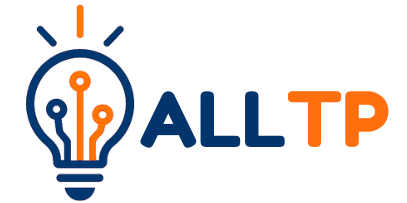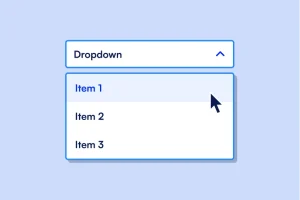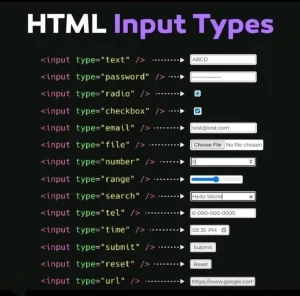In today’s rapidly evolving digital world, digital literacy is no longer optional, it’s essential. From basic coding to computational thinking, students need digital skills to thrive in both education and the job market. But the foundation of any successful digital learning program isn’t just the technology, it’s the teachers. When educators are empowered, trained, and supported, they become the most powerful drivers of digital transformation in schools.
This is the mission behind All Things Programming, a Kenyan-led initiative offering coding for kids and teacher training programs that put educators at the centre of ICT integration. Through live classes, one-on-one sessions with experienced tutors, and flexible online/offline resources, the program equips teachers with the tools and confidence to bring coding into any classroom, even with minimal tech infrastructure.
Join us in reimagining ICT in schools. Partner with All Things Programming today to sponsor a teacher, support a school, or enroll in our next training cohort.
The Case for Teacher-Led ICT Initiatives
While many ICT programs rely on short-term workshops or visiting experts, these solutions often fade once external support ends. Empowering teachers themselves to lead ICT integration offers a far more sustainable path, one that builds internal capacity and reshapes the entire school culture.
When teachers are trained to deliver and support coding education, they don’t just gain a new skill, they become in-house ICT champions. These champions offer several key advantages:
- Mentorship: They guide fellow teachers, helping them overcome fear or inexperience with digital tools.
- Consistency: Unlike visiting trainers, they’re present every day, supporting students and colleagues in real-time.
- Peer Training: Teacher-led professional development fosters trust and relevance, and teachers know how to speak to each other’s challenges.
A powerful example of this is seen in schools where trained teachers have moved from merely using prepared lesson plans to actively co-creating coding curricula with their peers. They adapt materials to fit the local context, integrate coding across subjects, and even lead school-wide tech initiatives like digital literacy weeks or student hackathons.
This shift, from passive recipients to proactive innovators, marks a turning point. Teacher-led ICT is not just possible; it’s essential for building resilient, future-ready schools.
What Our Coding Lessons Include
Our teacher-focused coding lessons, delivered through All Things Programming and the broader Coding Kenya initiative, are designed with one core goal: to make educators feel confident and capable of implementing ICT in the classroom, regardless of their technical background.
We start where teachers are and grow their skills step by step, using beginner-friendly tools like Scratch and Python to ensure no teacher is left behind.
Whether in a rural school or an urban center, our programs are tailored to local realities, empowering teachers to build practical, sustainable digital learning environments.
1. Hands-On Training in Scratch and Python
We introduce teachers to both block-based coding (Scratch) and text-based coding (Python). Scratch helps teachers (and their students) understand core programming concepts like loops, conditionals, and variables through visual storytelling and games. As confidence grows, we transition to Python, a versatile, industry-standard language, to give teachers a glimpse into real-world coding.
2. Real-World Classroom Application
We don’t just teach code; we show how to teach with code. Our training includes strategies to integrate coding into math, science, social studies, and art. For example, learners might simulate plant growth cycles in Scratch or analyze data sets using Python during a geography lesson.
3. Practical Teaching Tools
To support everyday teaching, we provide:
- Pre-made lesson plans tailored for different age groups
- Interactive coding modules aligned with the national curriculum
- Offline versions of Scratch and Python tools for schools with limited internet access
4. Focus on Confidence-Building
Most importantly, we address the fear many teachers have around ICT. Our sessions are designed to be non-intimidating, collaborative, and paced for real beginners. Many participants start with little or no exposure to code and end up leading coding clubs or helping others do the same.
By the end of the program, teachers aren’t just familiar with coding, they’re ready to lead it.
Transforming Classrooms Through Teacher Leadership
When teachers take the lead in ICT, the transformation goes far beyond lesson plans; it reshapes how students learn, think, and interact with technology.
Across Kenya, we’ve seen remarkable examples of teachers using their new coding skills to ignite a culture of innovation in their schools. Some have launched student-led coding clubs, where learners experiment with Scratch animations and simple Python projects after class. Others have gone further, organizing coding hackathons, digital storytelling competitions, or peer-learning workshops that turn traditional classrooms into creative labs.
More importantly, these teacher-led efforts have helped students shift from being passive consumers of technology to active creators. Instead of just using apps, students are learning how to build them. Instead of memorizing facts, they’re solving real problems, like designing an app to help their school recycle, or simulating rainfall data to understand local weather patterns.
The impact is clear:
- Student engagement rises, especially among learners who previously struggled in conventional subjects.
- Problem-solving skills improve as students learn to break challenges into steps, test solutions, and think logically.
- Girls’ participation in STEM increases when they see their own teachers, especially female teachers, leading tech initiatives.
This is the power of teacher leadership: it doesn’t just improve ICT instruction, it inspires an entire learning community to grow, explore, and lead.
Success Stories Across Kenyan Schools
The most powerful proof of our coding program’s impact lies in the stories of the teachers who’ve embraced it and the ripple effects they’ve created in their schools. From bustling city classrooms to rural communities, trained teachers are driving real transformation.
1. Narok County – Rural Innovation Through Scratch
In a rural primary school in Narok County, Ms. Chepkemoi, a Grade 6 science teacher, had never written a line of code before joining the program. Today, she integrates Scratch animations into her weekly lessons, helping her students visualize everything from plant growth cycles to geometry.
“Before, I only used the computer to type exams,” she says. “Now, my students are building games to revise topics. Learning is fun for them and for me.”
2. Eastlands, Nairobi – Python in the Math Class
In Nairobi’s Eastlands, Mr. Mwangi, a high school math teacher, began using Python to teach patterns and sequences. What started as an experiment has turned into a school-wide ICT movement, with Mwangi leading peer training for other teachers on integrating code across subjects.
“The students who used to struggle with logic now lead group problem-solving activities,” he says. “We’re seeing a real mindset shift.”
3. Thika – Empowering Girls Through ICT Clubs
At a peri-urban girls’ school in Thika, Ms. Wanjiru used her training to launch an after-school coding club for girls, starting with Scratch and later transitioning into Python. The club has grown from 8 to 34 members, with students now competing in national ICT challenges.
“When girls see me coding, they believe they can too. That’s the change we needed.”
Impact Snapshot
- 85% of trained teachers report increased ICT integration across subjects
- Over 60% have led peer training or ICT clubs within 6 months of completing the program
- Significant student performance gains in problem-solving and digital literacy assessments in participating schools
These stories show what’s possible when we invest in teachers, not just as educators, but as digital leaders in their communities.
Lessons for Policy and School Leaders
If Kenya is to truly embrace digital learning, empowering teachers must be at the center of national ICT strategies. While infrastructure investments like computers and internet access are critical, they are not enough. Without structured, ongoing teacher training, even the best technology sits unused or underutilized.
To create sustainable change, policy and education leaders must prioritize the following:
1. Institutionalize Teacher ICT Training
Coding and digital literacy should be embedded in teacher training colleges and Continuous Professional Development (CPD) programs. This ensures that all teachers, not just ICT specialists, have the skills to integrate technology meaningfully across the curriculum.
2. Appoint and Support ICT Champions in Every School
Each school should identify at least one ICT Champion, a trained teacher who leads implementation, supports colleagues, and acts as a liaison with education offices and training partners. These champions need protected time, mentorship, and recognition to thrive in their roles.
3. Leverage Public-Private Partnerships (PPPs)
Successful ICT integration doesn’t have to rely solely on government resources. Public-private partnerships, with tech companies, NGOs, and training providers, can bring innovation, funding, and scalability. Our own program is a testament to what’s possible when education stakeholders collaborate rather than compete.
By learning from both local successes and global models, Kenya can build a system where teachers are not just tech adopters, they’re ICT leaders.
Global Best Practices for Teacher-Led EdTech
While our work is grounded in the Kenyan context, there’s much to learn from successful international models that have prioritized teacher-led digital transformation in schools. These programs reinforce a powerful truth: technology integration is most effective when teachers lead the way, not when it’s imposed from the outside.
1. The U.S. – Building Teacher Tech Capacity in Classrooms
In the United States, many school districts have adopted “technology integration coaches,” experienced teachers who receive additional training to mentor others. This peer-led approach ensures digital tools are used in ways that align with classroom realities rather than theoretical models.
2. Finland – Pedagogical ICT Training
Finland’s success in EdTech adoption is rooted in its teacher autonomy model, where educators are trusted to experiment with digital tools and adapt them to student needs. Importantly, coding is taught not just as a subject, but as a tool for creativity across disciplines, something made possible through strong foundational training for all teachers.
3. A Research-Backed Resource: University of Wisconsin
The University of Wisconsin–Madison’s “Teaching Teachers to Use Technology” offers a research-based framework for effective technology integration in teacher education.
This site explores strategies such as:
- Embedding tech training directly into teacher practicum experiences
- Focusing on pedagogical reasoning, not just tool mastery
- Using case studies and collaborative lesson design as part of the learning process
This evidence supports what we’ve seen locally: when teachers receive practical, ongoing support, they don’t just learn how to use tech, they learn how to lead with it.
By aligning our local programs with such international best practices, we can ensure that Kenyan teachers remain at the forefront of global EdTech innovation.
Conclusion
As we look to the future of education in Kenya, one thing is clear: teachers are the key to unlocking the full potential of ICT in schools. Educators who gain coding skills, practical tools, and the confidence to lead don’t just improve their own classrooms, they spark change across entire school communities.. The most sustainable innovation in education comes from within, and that means supporting teachers as the driving force behind ICT integration.
At All Things Programming, we’ve seen firsthand how beginner-friendly, hands-on training empowers teachers, regardless of their prior experience. Our approach emphasizes coding for beginners, ensuring that even educators with no tech background can start with Scratch and progress confidently to Python. These aren’t just skills; they are gateways to creativity, critical thinking, and collaborative learning. From Narok to Nairobi, teachers trained through our programs are now leading coding clubs, mentoring peers, and embedding digital tools into everyday lessons.
Whether you’re a teacher eager to start your coding journey, a school leader seeking transformation, or a policymaker ready to invest in local capacity, join All Things Programming today. Let’s equip every teacher to lead with confidence and prepare every learner for a digital future.




